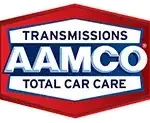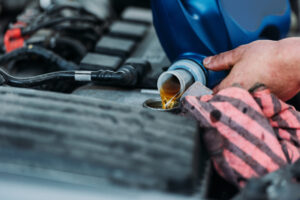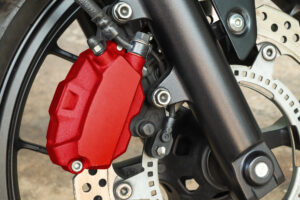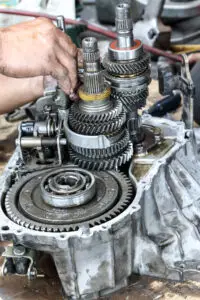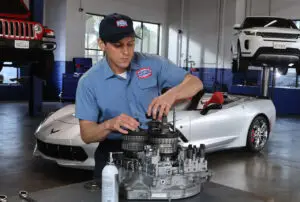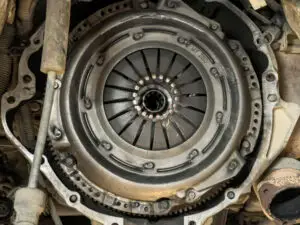Whether extending the life of your vehicle is your top priority — or you just want to drive with ease every day — proper car care is key. Each component and system in your vehicle benefits from regular maintenance and following recommendations from the manufacturer. Want your car to run like a well-oiled machine? From regular servicing done by a professional mechanic to tasks you can do at home or on the road, follow this checklist to help keep your car running smoothly.
Schedule These Essential Car Care Services
Regular visits to a trusted mechanic go a long way toward keeping your car healthy. Each system requires its own maintenance and inspections at least once a year can help catch necessary repairs early, before they cause more extensive damage. Add each of these car care services to your calendar and follow additional recommendations from your mechanic or manufacturer.
Regular Oil Changes & Engine Tune-Ups
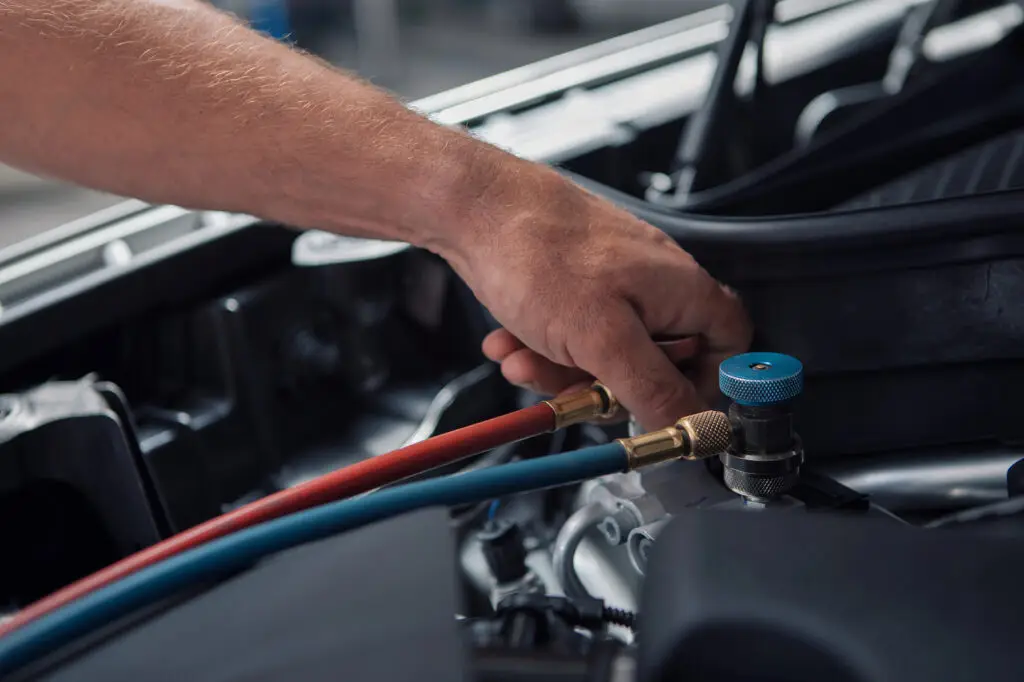
Your engine relies on oil to operate efficiently, prevent wear, and minimize heat generation. Over time, it gradually degrades and accumulates contaminants as you drive. This inhibits its ability to lubricate moving parts and generate necessary pressure in the engine. A general rule of thumb is to have your oil changed every 6-12 months or 5,000-7,500 miles, whichever happens first. However, your owner’s manual will have specific recommendations for your vehicle.
Annual Tire Alignments & Rotations
Regular tire alignment services help optimize your fuel economy, as well as prevent uneven tire tread wear. This service ensures all of your wheels are angled in the same direction. You’ll also notice a positive impact on handling with regular alignments. In general, your front tires wear out faster than the rear. Scheduling annual tire rotations will help keep tire wear even so that all four wear out at about the same time.
Inspection of Serpentine & Timing Belts
Replacing a worn serpentine or timing belt is relatively simple. Replacing a failed belt is much more serious because it can cause extensive damage to other components. Not only is this costly, but it can also shorten the life of your vehicle overall. The timing belt is positioned behind the engine and is connected to the crankshaft, opening and closing the engine’s valves via the camshaft. The serpentine belt helps power systems like the power steering and air conditioning. Your mechanic should be able to easily check whether either belt needs to be replaced during regular inspections.
Replacement of Brake Pads & Rotors
Each time you press the brakes, it wears on the pads and rotors. This also makes it more difficult to slow your vehicle, as you gradually lose braking power. Check your brake pads and rotors regularly for signs they need to be replaced. In general, once brake pads are ¼” or less thick, new ones should be installed. Rotors with a noticeable ridge around the outer edge should also be replaced.
Don’t Skip At-Home Car Care Tasks
Though repairs, maintenance services, and thorough inspections are best done by a professional mechanic, there are many ways you can take care of your car at home. Doing regular checks on fluids and tire pressure, using the correct fuel type, and following manufacturer recommendations from your owner’s manual are all simple but go a long way.
Keep an Eye on Tire Pressure
Proper tire pressure helps extend the life of your tires and helps with precise handling while you drive. Many vehicles now have tire pressure sensors that will alert you when any of your tires are over- or under-inflated. However, you may benefit from consulting your owner’s manual for the recommended range and regularly checking each tire manually.
Check Your Car’s Fluids Regularly
Engine oil, coolant, and wiper fluid all play important roles — and they’re easy to check. Pop the hood of your car and locate the engine oil dipstick, coolant reservoir, and wiper fluid cap. Each should have lines for maximum and minimum levels. If your wiper fluid is low, topping it off will help you maintain visibility no matter the weather. If the engine oil or coolant is low, topping them off will help your car’s performance temporarily, but a mechanic should inspect the systems for wear and replace the fluids.
Use the Correct Octane When Fueling Up
Whether you think pricier is better or prefer saving money, the key factor in choosing the correct octane at the gas station isn’t cost. Many common cars on the road run well with regular octane fuel (generally 87) — in which case, there’s no need or benefit to paying more for premium. However, if your manufacturer recommends using premium octane (91-94), it’s important that you stick to that for the best engine performance and to help prevent wear.
Check Your Owner’s Manual for Specific Recommendations
When in doubt, check your owner’s manual. You’ll find information about what type of engine oil to use, the proper tire pressure, the best octane fuel, and recommended intervals for maintenance services. The closer you stick to manufacturer recommendations for your vehicle, the smoother it will run, the better performance you’ll enjoy, and the more you’ll extend its lifespan.
AAMCO: Chicagoland Car Care Services You Can Depend On
Keep your car on the road in Chicagoland. Regular car care services like oil changes and brake services help keep you safe on the road and ensure a smooth ride. Visit the expert mechanics at your local AAMCO and our Total Car Care services will help keep each essential system operating efficiently. Schedule your appointment with us today!
